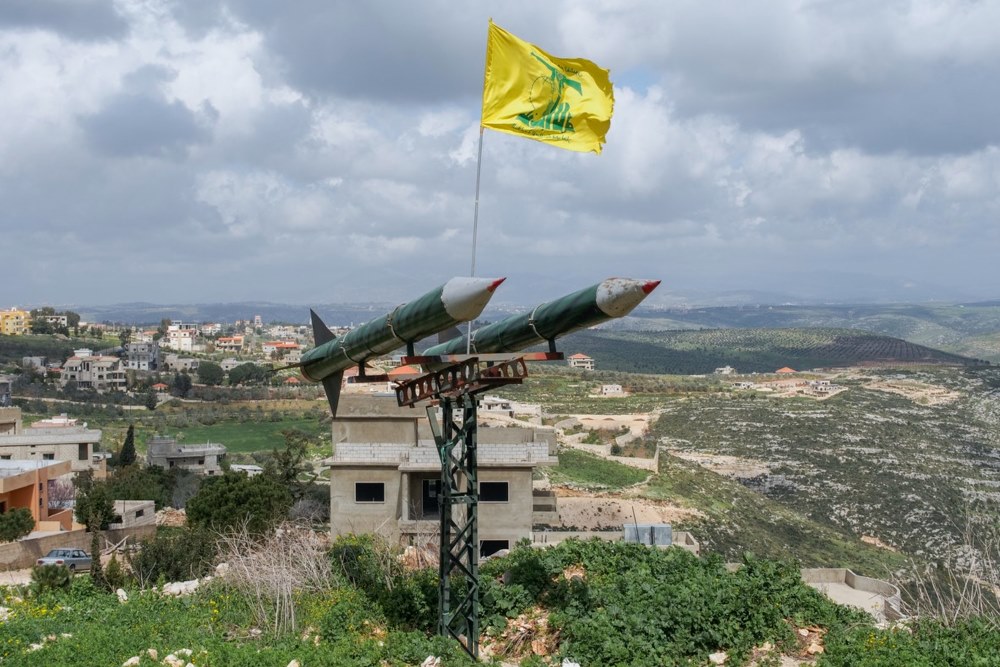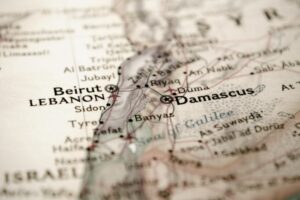
Hezbollah’s evolution from a small guerilla group into a large terror army made it more vulnerable to Israel’s military power. Originally known for its agility, Hezbollah was hit hard as its heavier infrastructure and military-style operations left it increasingly exposed to superior IDF intel and air power.
Heavy assets, big problems
Hezbollah’s military buildup and gradual shift toward large assets – such as heavy missiles and rockets, massive command bunkers, and logistics hubs – came at a steep price.
These static and immobile assets, meant to project strength and readiness, became liabilities under the constant watch of Israeli intel. Once identified, these facilities were essentially sitting ducks, which the IDF could strike at will. [Hezbollah largely lost all its front line positions, which could not be moved once Israel invaded. Here’s the detailed report]
While Hezbollah fighters continued to operate from concealed positions in southern Lebanon, the group’s infrastructure kept growing and spreading out, enabling Israel to expand its target list. The IDF mapped out many military sites, turning them into easy targets for surgical airstrikes and dealing heavy blows to Hezbollah’s operational capabilities
Another consequence of Hezbollah’s transformation into an army was the logistical burden of managing a large fighting force and its assets. As the group expanded, so did its need for supply lines, centralized communications, and secure transportation routes.
Managing operations on such a large scale required considerable coordination, produced more targets for attack, and created exploitable patterns that Israeli intelligence could monitor.
Military tactics fail
Hezbollah’s shift to a structured military hierarchy and adoption of military-style operational protocols also made it more vulnerable. By decimating the group’s chain of command, Israel disrupted its ability to organize extensive attacks and operations.
Moreover, instead of deploying independent guerrilla squads that are harder to surveil, similar to Hamas tactics in Gaza, Hezbollah continues to follow orderly military tactics that are easier to monitor and predict, Ynet reported.
This organizational rigidity leaves Hezbollah more exposed to Israel’s advanced intelligence capabilities, the report says.
The IDF employs an effective system to monitor Hezbollah activities, with signals, visual and human intel constantly fed into a central hub. The army uses advanced tech to rapidly analyze data pouring in from thousands of sensors, with analysts working around the clock to relay vital info to forces in the field.
The IDF is able to spot Hezbollah squads preparing for attack miles away, alerting forces to take protective measures and organize counterstrikes. This well-oiled intel machine enables the IDF to detect and eliminate dozens of Hezbollah terrorists daily by calling in airstrikes to support ground forces, the report said.
Hezbollah can’t match IDF
Overall, Hezbollah’s transformation into a military entity compromised some of the benefits it enjoyed as a smaller, more flexible terror group. Its reliance on heavy assets and rigid protocols exposed it to efficient intelligence tracking and devastating strikes by Israel.
Notably, the IDF was initially built to counter conventional armies on traditional battlefields, rather than guerillas operating in the shadows. Through its military buildup, Hezbollah inadvertently played into Israel’s hands, carelessly entering a conflict against a vastly superior rival.
While Hezbollah adopted some aspects of a conventional military, critical weaknesses such as the lack of an air force left it thoroughly outmatched. [here’s the full report on Hezbollah’s inability to deal with the Israeli Air Force]
Looking forward, Hezbollah faces a strategic dilemma: Continue down the path of conventional warfare, or return to a more decentralized, guerrilla-style strategy that once kept Israel off balance. For now, the group is losing a war on a battlefield it was ill-equipped to navigate.


